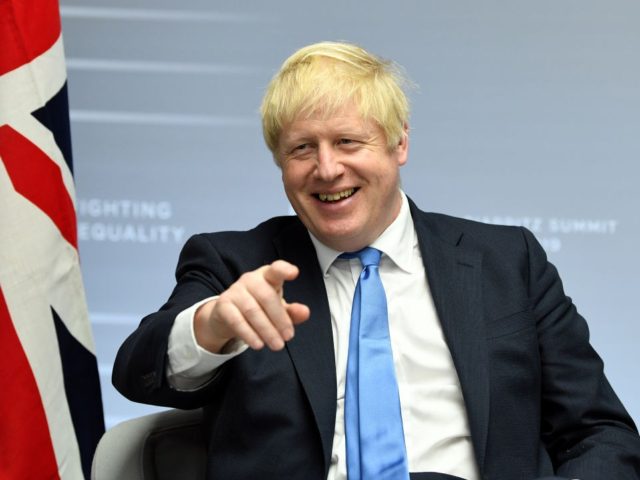Boris Johnson’s government is activating the constitutional mechanism to suspend Parliament on Wednesday, a move which has outraged Remainers because it limits the amount of Parliamentary time available to them to sabotage Brexit taking place at the end of October.
The Prime Minister confirmed will take place on Wednesday, and will see what is called in Westminster jargon Prorogation last five weeks between September and mid-October. Parliament will reopen on October 14th with the Queen’s speech, the ceremonial delivery by the monarch of a speech written by the government outlining their political intentions for the coming session.
It is normal for a new government to bring forward a Queen’s speech, and the announcement follows Boris Johnson replacing Theresa May as Prime Minister and building his own government on July 24th, but pro-Remain activists and politicians have reacted to the announcement with undisguised anger. The timing of the announcement severely restricts the amount of Parliamentary time they have to subvert the 2016 referendum, in which the British people said they wanted the country to leave the European Union.
The departure has already taken over three years to come to fruition and is nearly six months late from its original legally mandated withdrawal date.
Conservative Brexit rebel Dominic Grieve, the former attorney general who has spent months actively plotting against his own government in endless bids to frustrate the will of the British people, was one of the strongest critics. He called the suspension “pretty outrageous” and rejected the government’s claim that the move was about starting a new parliamentary session.
Speaking Wednesday, Grieve said he was willing to bring down the government to prevent Brexit: “I’ve always been of the view that bringing down the administration which is made up of a party of which I am a member is something I would only do as a last resort and that remains my position and I don’t wish to do it f there is any way of avoiding it. But if there is no other way of avoiding it, it may be the only thing I can do.”
Grieve was joined in comments by Philip Hammond, who was Chancellor of the Exchequer — Britain’s finance minister — under the Theresa May’s government but resigned before Boris Johnson had time to fire him. A die-hard remainder who it is claimed sabotaged Brexit preparations during his time in government, Hammond said Wednesday: “It would be a constitutional outrage if Parliament were prevented from holding the government to account at a time of national crisis. Profoundly undemocratic.”
Anti-Brexit Labour politicians also lined up to signal their anger, with senior figures calling the prorogation “scandalous” and “dangerous”.
The government itself played down the announcement. Conservative Party chairman James Cleverley MP said the development was unsensational, summarising it as”Government to hold a Queen’s Speech, just as all new Governments do”. Meanwhile, a government spokesman characterised it as “…this is about the NHS and violent crime, not Brexit, and the courts have no locus to interfere in a bog-standard Queen’s Speech process.”
Speaking to Sky News Wednesday morning, Prime Minister Boris Johnson made the announcement official and reinforced the official line that the decision was about governing the country, rather than Brexit. He said: “…we’re not going to wait until 31 October before getting on with our plans to take this country forward. This is a new government with a very exciting agenda… all you should take from this is that we are doing exactly what I said on the steps of Downing Street, which is we must get on now with our legislative domestic agenda.”
Under the British constitution, a Parliamentary session is ‘Prorogued’ — that is to say, suspended — at regular intervals to allow a new session to begin. This is a duty performed by the Queen on the advice of her ministers, through a body called the Privy Council.
While the Queen could theoretically refuse the instruction of the government, in practice the monarch always does as instructed by the government and has done so for centuries.
The outrage of pro-Remain activists at the government attempting to deliver the Brexit vote made by the British people in 2016 leaves the country in the strange situation where left-minded politicians who would normally be outraged at the Queen making any decisions for herself are now demanding she do just that, to suit their own agenda.
One such group is the anti-Brexit Best for Britain. They went so far as appearing to threaten the Queen with future consequences if she didn’t abandon her constitutional duty and follow their instructions instead. The group leader said: “…she would do well to remember history doesn’t look too kindly on royals who aid and abet the suspension of democracy.”

COMMENTS
Please let us know if you're having issues with commenting.